Brad Pitt’s new movie “Fury” which is soon to be released is based upon a story in the 2nd World War. Wardaddy (Brad Pitt) commands a Sherman tank in this movie.
Some of the scenes of this movie were filmed in The Tank Museum Bovington mainly on two historically significant tanks the Sherman and Tiger 1. These are the same tanks which were subjects of SRDC widely published research by Adil Saeed (lead researcher), Zulfiqar Khan, Mark Hadfield and Richard (supervisors). These tanks can be seen in action in the movie trailer Brad Pitt – FURY in around 2 minutes and 26 seconds.
This movie reflects the importance of our research that “how can we preserve vehicles in a valuable state for the benefit of society for lengths of time that far exceed the basis any normal design intent”. As with the imminent centenaries of the First World War and the passing of the Generation that fought in the Second World War, the conservation of significantly degrading vehicle collections has taken on a new importance.
The Tank Museum at Bovington is arguably one of the largest museums in the world. There is a collection of over 300 historic military vehicles with historic significance. Structural deterioration through corrosion, corrosion fatigue, stress corrosion cracking and mechanical failures are a threat to these vehicles in terms of conservation.
Tiger and Sherman are some of the prominent collections. The only operational Tiger tank in the world is currently at The Tank Museum at Bovington. These artefacts had to be conserved sustainably while operating modestly to enthuse spectators during the annual Tank Fest, other events and engaging new generation in science, technology and maths through the interactive ingenuity of the early 20th century to develop mechanical engineering design solutions and above all conserve them sustainably for the future generations to come.
Team from the Sustainable Design Research Centre with The Tank Museum, academics from Oxbridge, Bath, Cardiff universities and stakeholders from industry met in 2008-09 at the Tank Museum to discuss/brain storm on how to develop a framework. This will allow to formulate sustainable methodology of conserving these vehicles.
These early discussions incubated The Tank Museum match funded (£25K + £3600) PhD programme in “Sustainable Methodology of Conserving Historic Vehicles”. The successful completion of the project provided an understanding of military vehicle conservation from a predominantly technical viewpoint.
The research between BU and The Tank Museum was focused to address increasing problems of corrosion and component failures in The Tank Museum military tanks including the Tiger 1, Sherman, Centaur, King Tiger, Wolverine M10 and BT – R 60, which have significant cultural, heritage and historical value.
This research has delivered immense impact through scientific findings and benefits to the British Heritage. Research led by Dr Adil Saeed with supervisory team Zulfiqar Khan, Mark Hadfield and Richard Smith has delivered a framework of condition monitoring and conservation of ageing military vehicles. This is the first kind of research which has resulted in the development of new conservation facility, installation of relative humidity and temperature monitoring sensors, live-corrosion condition monitoring sensors and the implementation of a control environment.
The findings have also attracted international industrial players in corrosion, structural deterioration and materials’ characterisation, who have been involved through in-kind support such as NASA Materials Testing and Corrosion Control Branch (joint research publication), Systems Technology, PANalytical Ltd, Analatom, PMI Analytical, Carl-Zeiss Cambridge and West-Dean Chichester (in kind support totalling £21Kl) in experimental resources.
The successful delivery of this project produced measurable significant societal and academic impacts. Defence Science and Testing Laboratories (DSTL), Ministry of Defence is match funding (£22.5K) PhD studentship in “In-situ corrosion health monitoring and prediction in military vehicles” (Dr Khan PI).
This work led to collaborative research postdoctoral research programme in “Polarisation and Coating Data research” with Wessex Institute of Technology. This work is led by Dr Adil Saeed as postdoc researcher, Mark Hadfield & Zulfiqar Khan (PI, Co-I) and Professor Carlos A. Brebbia and Dr Robert A Adey from WIT.
A first BU-Tank Museums EU Conference was held at BU on Monday 2nd July 2012. The following participated in a hugely successful conference
- BU
- The Tank Museum, Bovington, UK
- Oxford University, UK
- Military Museum, Munster Panzer Museum, Germany
- Finnish Tank Museum, Finland
- Swedish Tank Museum, Sweden
- Belgian Military Museum
- Military Museum, Dresden, Germany
Sustainable Design Research Centre has developed advanced labs which will play a significant role in future research. This is a major source of raising BU profile as International leader in Structural Integrity.
Level C Design Methods & Projects (40 credit unit led by Dr Khan) in Design Engineering course benefits from research informed education through their live project (50% of course work) in collaboration with The Tank Museum.
A newly developed level M unit “Structural Integrity” (20 credit led by M Koohgilani) will benefit from this research.
If you would like to know more about this research or SDRC activities in research, education and professional practice please contact
Dr Zulfiqar Khan (Associate Professor)
Director SDRC

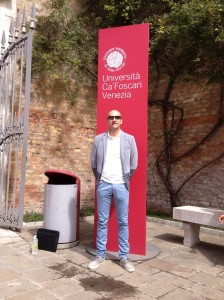 It was exciting to meet interested researchers and to exchange ideas on this common but little understood phenomenon. I was also surprised and delighted to receive the Certificate of Merit for “Outstanding Research and Presentation” which just added to the outstanding beauty of the conference location in Venice.
It was exciting to meet interested researchers and to exchange ideas on this common but little understood phenomenon. I was also surprised and delighted to receive the Certificate of Merit for “Outstanding Research and Presentation” which just added to the outstanding beauty of the conference location in Venice.
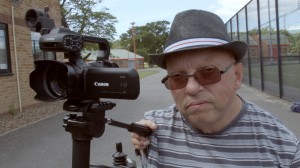




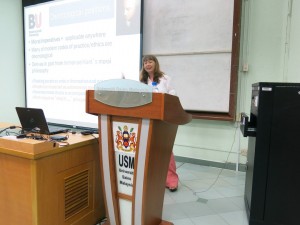
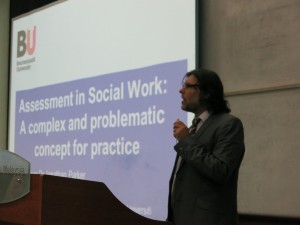
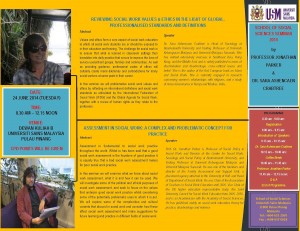
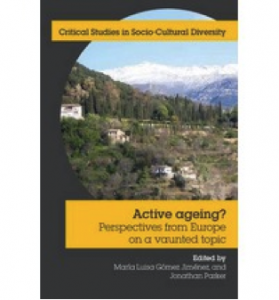

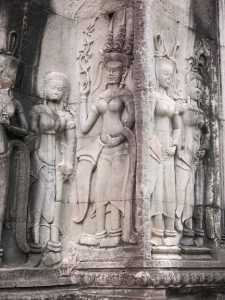
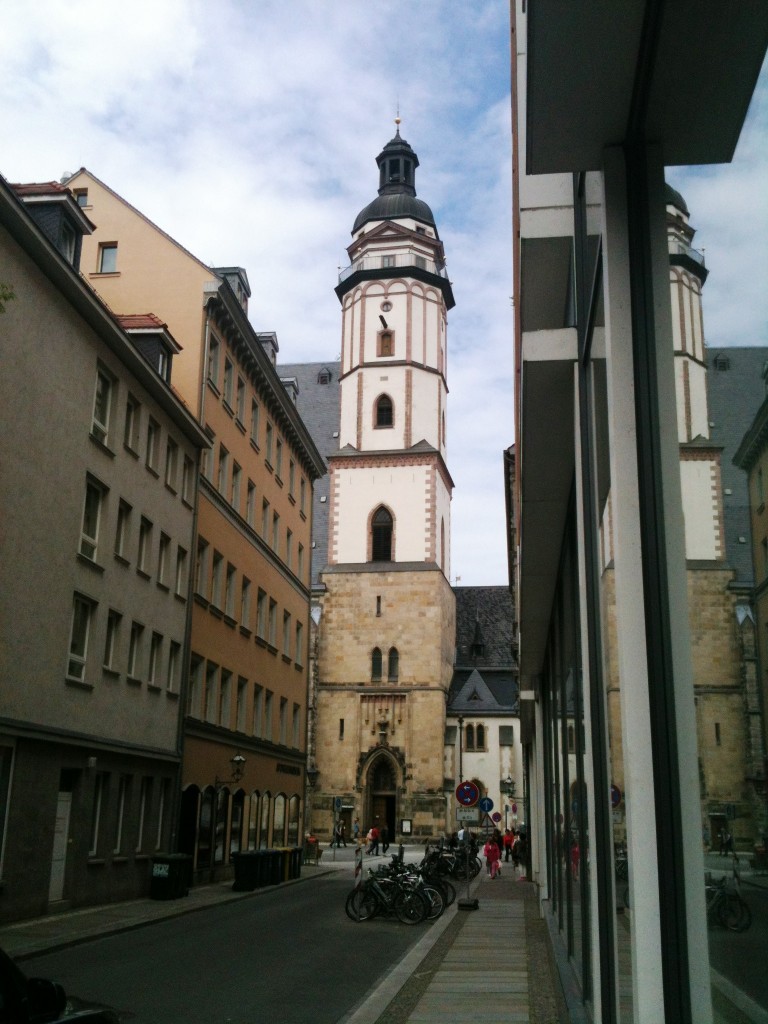

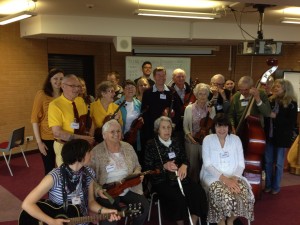
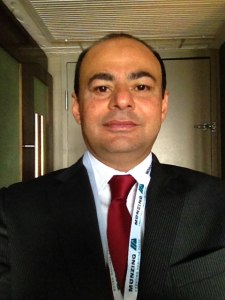

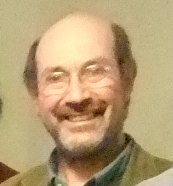
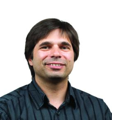



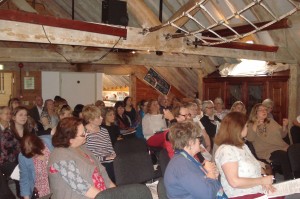
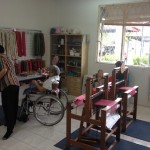
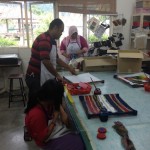











 REF Code of Practice consultation is open!
REF Code of Practice consultation is open! BU Leads AI-Driven Work Package in EU Horizon SUSHEAS Project
BU Leads AI-Driven Work Package in EU Horizon SUSHEAS Project Evidence Synthesis Centre open at Kathmandu University
Evidence Synthesis Centre open at Kathmandu University Expand Your Impact: Collaboration and Networking Workshops for Researchers
Expand Your Impact: Collaboration and Networking Workshops for Researchers ECR Funding Open Call: Research Culture & Community Grant – Apply now
ECR Funding Open Call: Research Culture & Community Grant – Apply now ECR Funding Open Call: Research Culture & Community Grant – Application Deadline Friday 12 December
ECR Funding Open Call: Research Culture & Community Grant – Application Deadline Friday 12 December MSCA Postdoctoral Fellowships 2025 Call
MSCA Postdoctoral Fellowships 2025 Call ERC Advanced Grant 2025 Webinar
ERC Advanced Grant 2025 Webinar Update on UKRO services
Update on UKRO services European research project exploring use of ‘virtual twins’ to better manage metabolic associated fatty liver disease
European research project exploring use of ‘virtual twins’ to better manage metabolic associated fatty liver disease